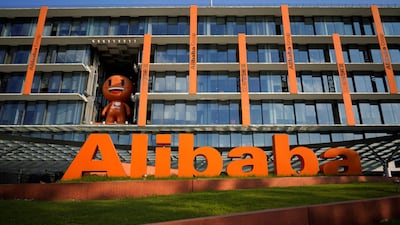Alibaba Group is cutting its spending on travel and postponing some new hiring as China’s largest e-commerce company braces for a slowing economy, people familiar with the matter said.
Some new hires were told they can’t start until the new fiscal year begins in April, the people said, asking not to be named because the matter is private. The travel cuts include restricting business class airfares on a unit-by-unit basis, with staff only able to select a premium cabin on every fifth round trip that takes more than 20 hours, one of the people said.
The trade war with the US is casting a bigger shadow over China, with Alibaba chairman Jack Ma warning in September about the challenges facing the company and local economy as tensions escalate. The macro slowdown is hitting everything from hardware manufacturers to the world’s biggest startup Bytedance, which is said to have barely hit its revenue target for 2018.
New hire headcounts are shrinking, one person said. A candidate was told an offer would only be extended if they were prepared to wait until April, another person said.
Staff were also told that Hangzhou-based Alibaba would no longer pay for better seats within a class, such as those with extra legroom, a person familiar said. Taxis to the airport will only reimbursed if there is a group of three traveling together, another person said.
When asked about any potential cuts, Alibaba said it’s always investing in talent and hunting for the right people.
_________
Read more:
How the cloud will create nearly 32,000 jobs in the UAE
SoftBank's Vision Fund is peanuts next to China's venture capital chest - that's a problem
_________
“Long-term strategic planning and continuous upgrades of our talent pool are central to Alibaba’s future,” Alibaba said in an email.
Mr Jack’s September warning included his concern that fallout from the trade tensions could have a much longer and bigger impact than people anticipated. He said the dispute could last 20 years and persist beyond the presidency of Donald Trump in the US.
Analysts have already started to predict a slowdown for China’s technology sector as business confidence deteriorates and consumer spending ebbs. Morgan Stanley estimates revenue among the country’s internet stocks it covers will grow 29 per cent on average in 2019 - dipping below 30 per cent for the first time since at least 2015. Economists see growth in China slowing to an annual pace of 6.2 per cent in 2019, the weakest pace since 1990.

